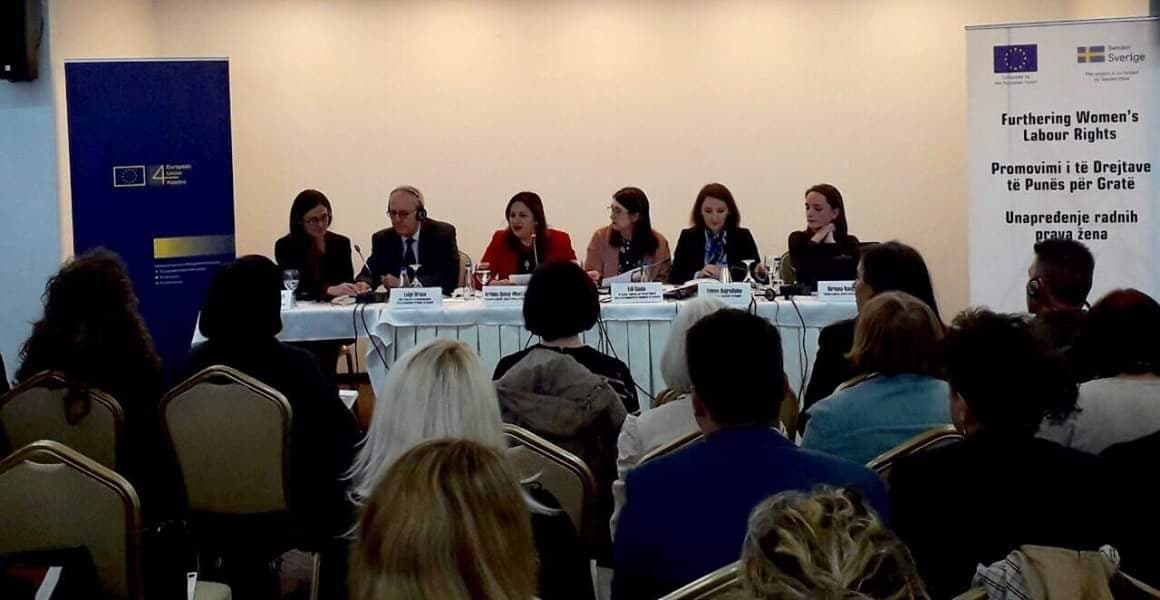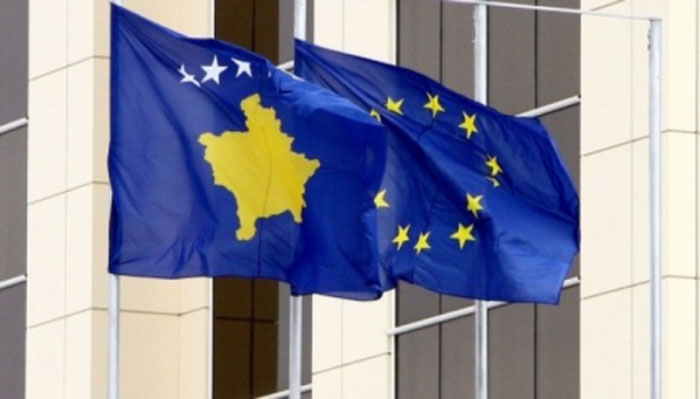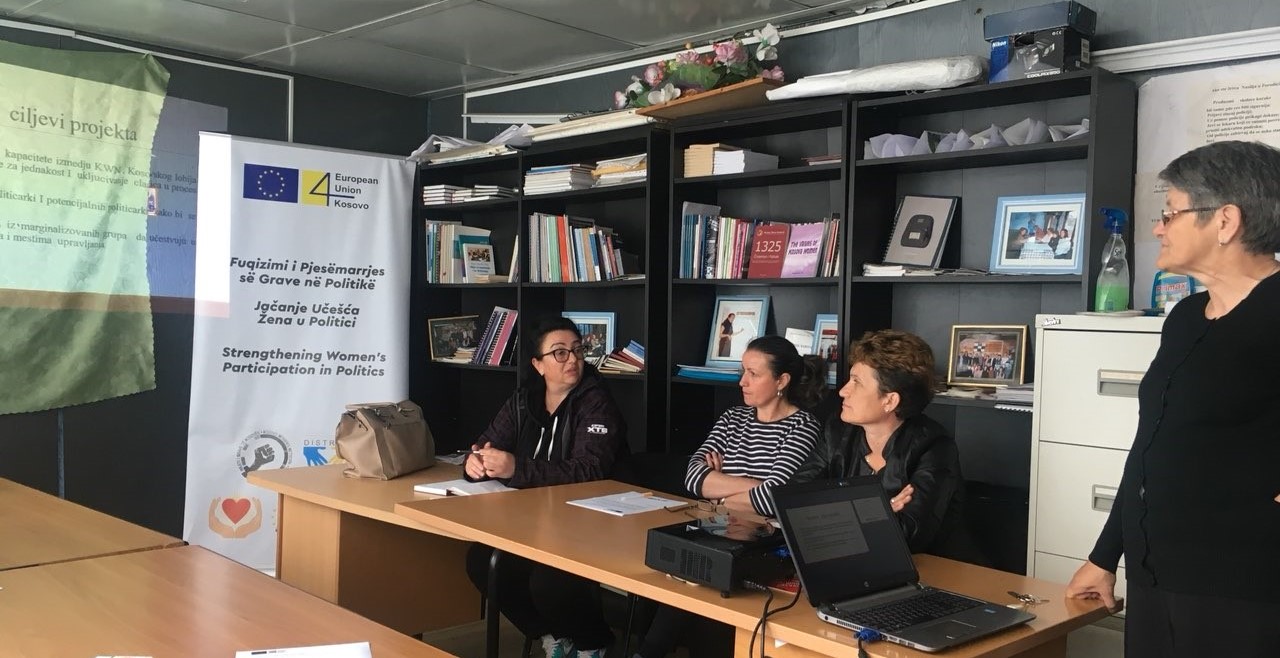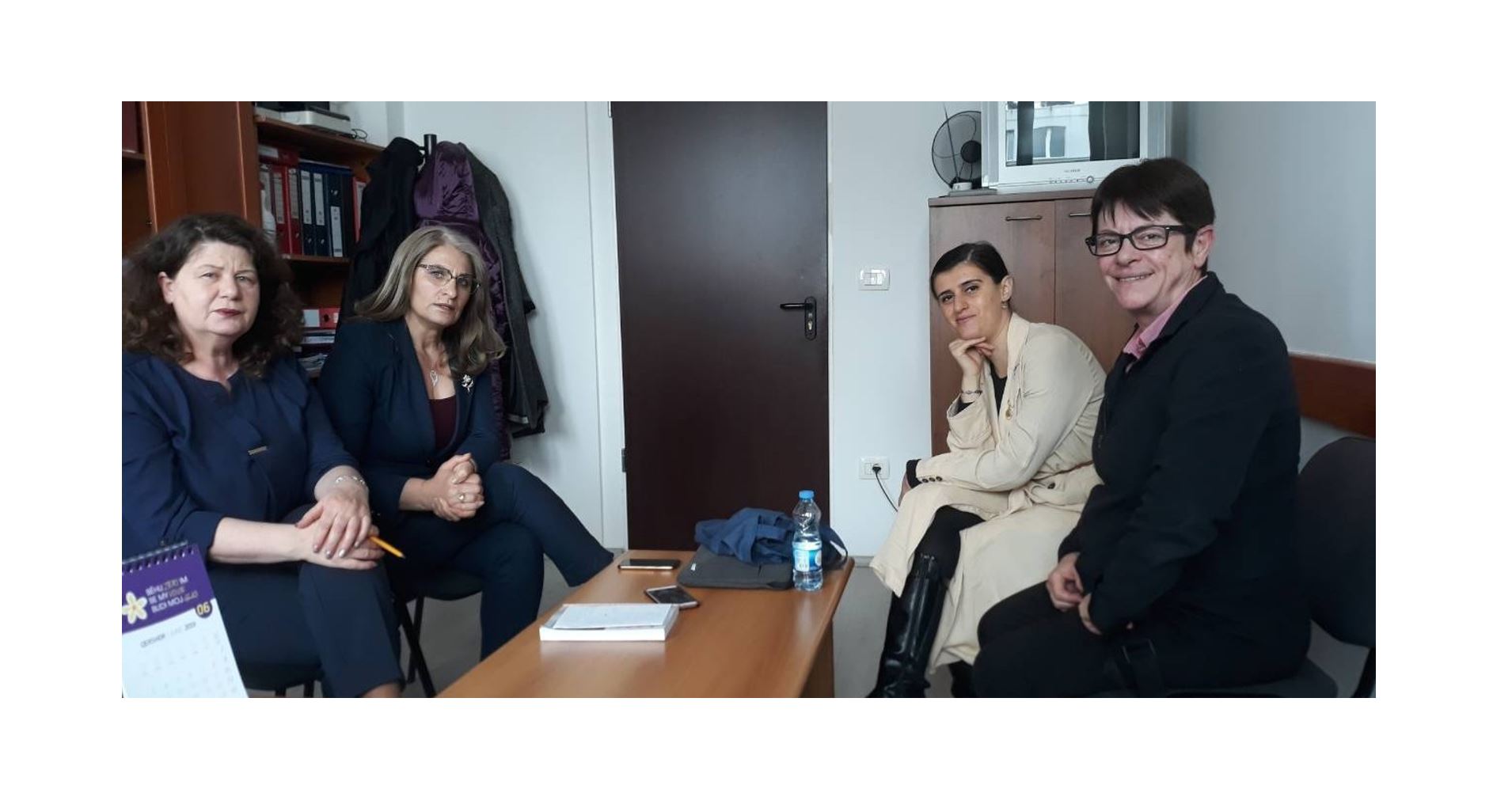Pristina, 11 Apr. 2019 – The Kosovo Women’s Network (KWN) in close cooperation with the European Union (EU), Agency for Gender Equality and Ombudsperson Institution launched a ground-breaking new report on Gender-based Discrimination and Labour in Kosovo. The event also served to launch officially a regional initiative to address gender-based discrimination in labour in six Western Balkan countries, co-funded by the EU and Sweden/Sida and led by KWN.
“Gender equality is a fundamental value of the European Union,” said Luigi Brusa, Head of Cooperation Section, EU Office in Kosovo. “I strongly encourage the government to address the recommendations made in this report. They need to harmonize laws with the Acquis Communautaire, including the Gender Equality Acquis. However, adopting laws is only the first step and is not sufficient,” he said. “The government must ensure implementation in practice.”
Recognizing the report, Edi Gusia, Chief Executive Officer of the Agency for Gender Equality in the Office of the Prime Minister said: “This research brings to our attention many important issues that also affect our work on a daily basis, which are: the collection of gender-disaggregated statistics in an improper manner and with an inconsistent methodology undermines the processes of law enforcement”.
“While the Constitution and legal framework are based on best international standards, including the values and principles of equal treatment between genders, women and girls in Kosovo, continue to live between two realities: legal and factual,” said Edona Hajrullahu, Deputy Ombudsperson. “Although unjust, this factual reality, which is often prejudicial and discriminatory against women, continues to prevail over the fundamental rights granted by the Constitution, international conventions and the primary legislation. Therefore, it is the duty of state institutions to ensure that the factual reality complies with the legal one, thus enabling equal opportunities.”
During this event, KWN presented key findings and recommendations resulting from the research, which was conducted in 2018 and involved mixed methods, including a desk review, online survey and interviews. The research provides information about shortcomings in the relevant legal framework; the prevalence and nature of gender-based discrimination related to labour; the extent to which people have filed claims; and how institutions have treated such cases.
Key findings, presented by two of KWN’s co-authors, Nicole Farnsworth and Iliriana Banjska, include:
• The legal and policy framework related to gender-based discrimination and labour in Kosovo seems rather comprehensive, particularly considering that much of the law is drafted in accordance with EU law. However, some overlap and unclarities require address.
• Most women and men survey respondents seemed aware that gender-based discrimination is illegal. While several knew that such discrimination should be reported to employers or the Labour Inspectorate, few knew of other institutions dealing with such cases.
• The institutions responsible for addressing gender-based discrimination at work lacked data about its prevalence. However, evidence shows that gender-based discrimination exists, particularly in hiring, promotion, maternity leave and sexual harassment at work.
• The odds of experiencing gender-based discrimination at work are 2.8 times greater for women than for men
• While police and prosecutors seem generally knowledgeable about their responsibilities in addressing gender-based discrimination at work, few such criminal cases have been reported, so they lacked practical experience and case law.
Key recommendations include:
• The importance of amending the Labour Law, Law on Gender Equality and Law on Protection from Discrimination to reduce overlap, clarify procedures and provide clearer sanctions for gender-based discrimination;
• The need for all relevant institutions to collect and maintain better data disaggregated by the gender of plaintiffs and defendants in accordance with the Law on Gender Equality, as well as by the specific articles violated;
• The need for more labour inspectors, particularly women, who are trained on recognizing and addressing gender-based discrimination at work;
• The need for inter-sectoral collaboration among relevant institutions and civil society, including trade unions, in raising women and men’s awareness regarding what constitutes gender-based discrimination and how to report it; and supporting persons who have experienced such discrimination in seeking justice.
The findings and recommendations will inform the actions of KWN and its partner organisations, among others, in coming years.
Speakers during the launching event, moderated by the KWN Chair of the Board, Ariana Qosaj-Mustafa, included Luigi Brusa, Head of Cooperation Section, EU Office in Kosovo; Edi Gusia, Chief Executive Officer, Agency for Gender Equality, Office of the Prime Minister; Edona Hajrullahu, Deputy Ombudsperson; Nicole Farnsworth, Program Director, Co-author, KWN; and Ilirijana Banjska, Co-author, KWN.
This action is co-funded by the European Union and Sweden/Sida.
For more information, please visit https://womensnetwork.org or call +381 (0) 38 245 850







